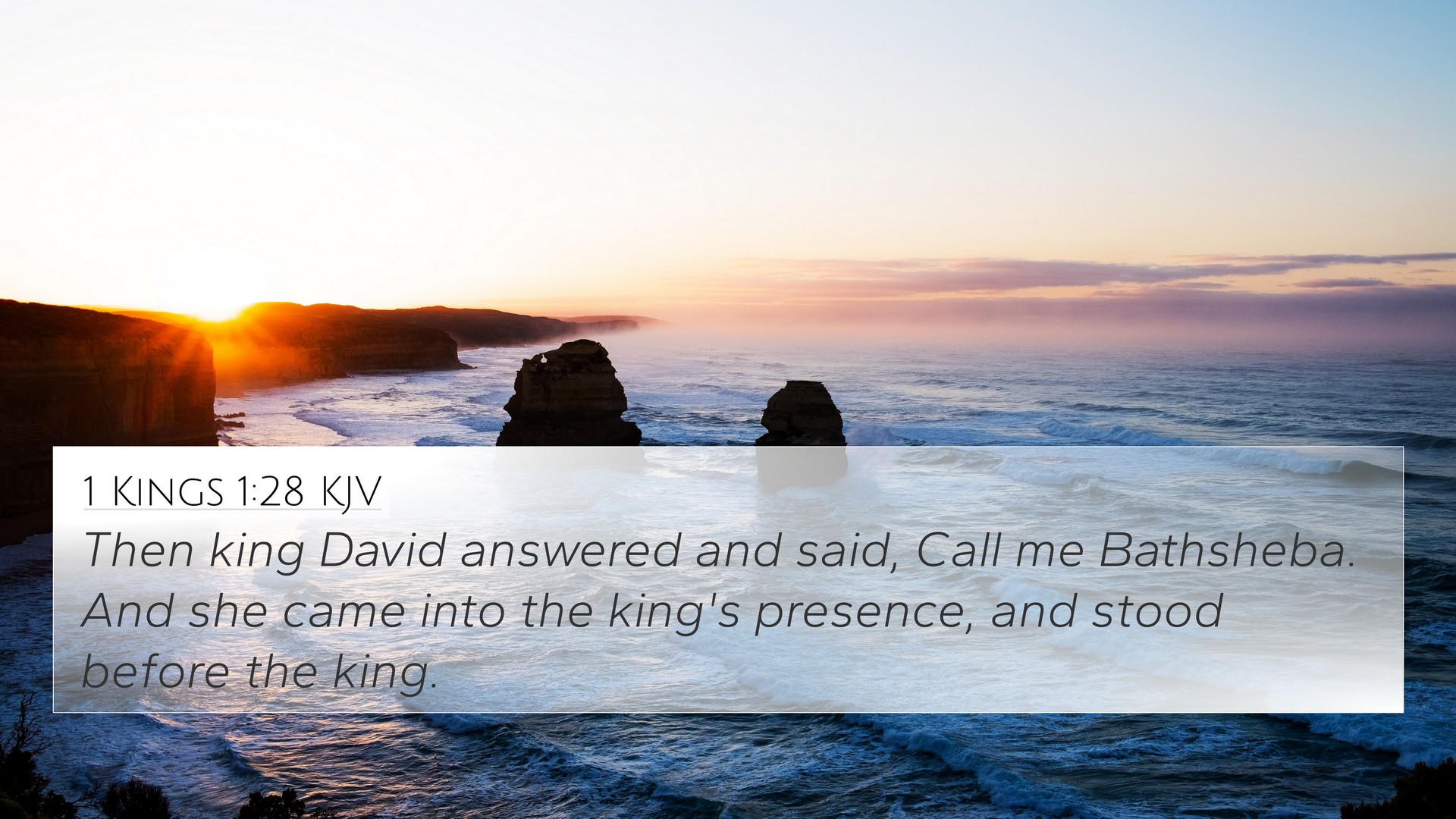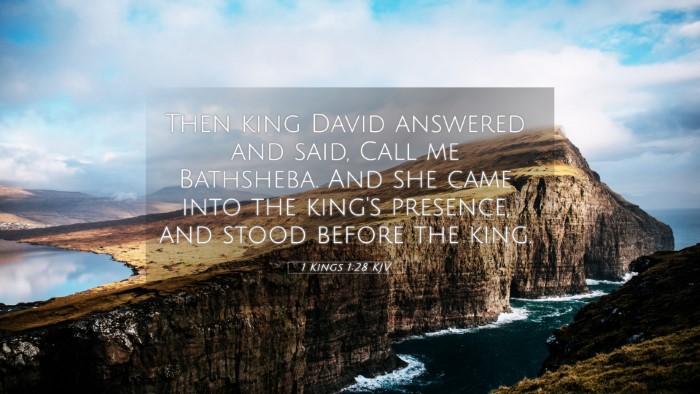Meaning of 1 Kings 1:28
In 1 Kings 1:28, we witness a pivotal moment in the narrative surrounding King David and his son Solomon. After hearing of the declaration of Solomon as king, David responds with affirmation and instructions. The verse reads:
“Then King David answered and said, ‘Call me Bathsheba.’ So she came into the king’s presence and stood before the king.’” (1 Kings 1:28, NKJV)
This verse sets the stage for important themes, and here we summarize its meanings based on public domain commentaries.
Commentary Insights
Matthew Henry's Commentary
Affirmation of Authority: Matthew Henry emphasizes that David's call for Bathsheba shows his recognition of her role in the past events and in the succession of the throne. He identifies her as the mother of Solomon, thus highlighting the importance of maternal influence in royal lineage.
Restoration of Order: David's actions symbolize a restoration of order in the kingdom, addressing the chaos created by the conviction to appoint Adonijah as king. Bathsheba's presence indicates the necessity of direct communication in decisions that affect future governance.
Albert Barnes' Notes
Symbol of Confidence: Albert Barnes explains that David's reference to Bathsheba underscores his confidence in Solomon. It reflects royal procedure and the importance of lineage, which establishes Solomon’s rightful claim to the throne.
Significant Communication: The interaction between David and Bathsheba highlights the necessity for open dialogue in the royal court. This pivotal moment lays groundwork for Solomon’s future reign, indicating that wisdom and counsel are critical in leadership.
Adam Clarke's Commentary
Mother-Son Relationship: Clarke discusses the deep bond reflected in this narrative, interpreting Bathsheba’s relationship with Solomon as foundational. This mother-son dynamic is crucial in understanding Solomon's later decisions as king.
Political Strategy: Clarke adds that calling Bathsheba demonstrates David’s strategic thinking in securing the support of the people. It’s a political maneuver to ensure that Solomon’s reign begins with both royal legitimacy and familial backing.
Thematic Connections
The themes present in this verse can be further explored through cross-references with other scriptures:
- 2 Samuel 12:24-25: This passage discusses Bathsheba’s previous role and bears witness to her significance in God’s plan regarding Solomon.
- 1 Kings 2:19: This verse continues the narrative of Bathsheba's influence in Solomon's reign, showcasing the ongoing maternal role in governance.
- Proverbs 1:8: Here, Solomon is instructed on the importance of listening to his mother, reflecting the foundational wisdom imparted by Bathsheba.
- Genesis 28:1-2: The significance of family blessings and instructions is echoed in Isaac’s charge to Jacob, laying a foundation for future generations.
- Ruth 4:17: The importance of lineage is highlighted here as well, as Ruth's story connects to the royal line of David.
- Psalm 132:11: This verse underlines the covenant God made with David concerning his descendants, amplifying the promise made to Solomon.
- Matthew 1:6: The genealogy of Jesus underscores the connection from David to Solomon, emphasizing Bathsheba’s part in salvation history.
Conclusion
The interactions in 1 Kings 1:28 demonstrate essential themes of authority, confidence, familial bonds, and strategic communication in leadership roles. These themes resonate not only within the context of David and Solomon but also echo throughout the entirety of the Scriptures, showcasing the intricate connections present in the Bible.
For those exploring the connections between Bible verses and how to find cross-references in the Scriptures, understanding passages like 1 Kings 1:28 enriches one's study and provides deeper insight into the overarching biblical narrative.


